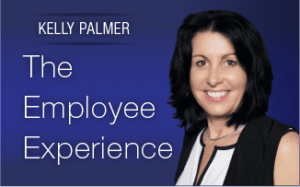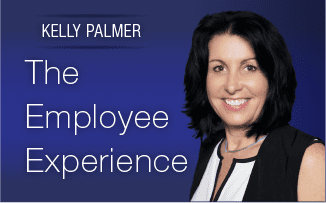 The rate of change is happening faster than ever before, and it’s imperative that we all focus on acquiring knowledge and building skills that will help us stay relevant in the workforce and prepare us for the future.
The rate of change is happening faster than ever before, and it’s imperative that we all focus on acquiring knowledge and building skills that will help us stay relevant in the workforce and prepare us for the future.
It’s incredible to think about how much has changed in the world of work just in the past 10 years. Today, my iPhone is indispensable, but a little over a decade ago, it didn’t exist. Nor did many jobs, including app developer, data scientist, driverless car engineer and YouTube content creator. It was difficult then to predict what skills people would need to be successful in the jobs that didn’t yet exist, and it remains difficult for individuals and companies to prepare for the skills of the future.
I’d also argue that companies have a more difficult time getting the workforce prepared for future work because the old model of corporate education moves at a relatively slow pace. For example, when I worked at Yahoo, we put together a corporate learning program on mobile development for software developers, but it took months to design and develop. By the time it was released, versions of the technology had evolved, and the offering was out of date quickly. In the new model, we have to keep up with this more rapid pace and meet people where they are. That means helping employees get skills and knowledge at the time of need.
To do so, first, stay up to date on ideas and trends. One way to stay relevant in your role and to be aware of what skills may be needed in the future is to make sure you stay up to date on all the current ideas and trends. You can do this by taking advantage of all the great content that is available. Many of you are probably already doing this and are unaware that you’re building skills for the future.
One of the ways I like to stay up to date on knowledge in my field is to listen to podcasts. I’m a huge fan of “HBR IdeaCast,” and every week they cover some of the latest trends and ideas from leading thinkers in business and management from Harvard Business Review. Another podcast I really enjoy is “Make Me Smart with Kai and Molly.”
I attended a webinar recently called “Invent Your Future” and the guest was Janet Foutty, the chairman and chief executive officer of Deloitte Consulting LLP. She spoke about the future of work, and her advice and practice is to read the New York Times or your favorite news daily so you are always up to date on what’s going on. Those are general ways to keep up with our constantly changing world and help set the foundation for what skills and knowledge you might need in the future workplace.
Focus on building specific skills. It’s also critical that we focus on building specific skills for the future. So much is changing, it’s important that we keep up on the latest trends. For example, as learning professionals it’s important to know what’s happening in the learning technologies market, to understand new learning platforms, build new skills and methods to create online content, learn how you can use data analytics and insights to tell the learning story at your company, and learn how machine learning works and how you might incorporate that into your future learning strategy. Christopher Lind, learning technology leader at GE Healthcare, wrote a great article recently on Going Digital where he talked about the six skills he feels are critical to going digital in the learning field.
Identify skills for the future learning organization. When I was chief learning officer at Linkedin building a new learning organization, I started thinking about the skills that were required to move learning into the future. I created new roles like content editor in chief to curate content and help others curate content. Learning experience designers, some with Javascript, HTML5 and CSS3 skills who could create innovative, interactive learning online, some with user experience design skills, and others with storytelling skills. Learning technologists could understand the learning platform landscape and how all our technology works together. Learning data analyst was someone who could take our learning data and glean insights to tell our learning story, and videographers could create learning video content.
Our field is still evolving, but more and more we are seeing new roles and skills emerging in learning, and in just about every industry. It’s important to build your knowledge and skills for the future.
If you stay up to date on current trends in the world and in your industry, that will help you see where the future skills and roles in the world of work are headed. You can also focus on building specific skills for where you are in your career now, or where you want to go in the future. And lastly, you can think about how you can help others gain knowledge and build the skills they may need in the future learning organization or in the rest of your company.
Kelly Palmer is chief learning and talent officer at Degreed. Comment below or email editor@CLOmedia.com.














